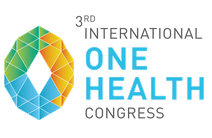Channels
Special Offers & Promotions
Scientists and Public Health Officials Work Together to Improve Human and Animal Health 16 March | RAI Amsterdam
Public health officials, policy makers and academics will gather in a parallel programme during the 3rd International One Health Congress (IOHC2015).
 The special 1-day Science Policy Interface (SPI) programme is specifically designed to bridge the gap between science and health policy. In a series of eleven lectures, the world's leading experts will evaluate recent health crises like the outbreaks of Ebola, Q-Fever, BSE, pandemic swine flu and SARS. They will also cover the most imminent public health challenges, unmasking potential killers like avian influenza virus, the henipavirus and Rift Valley Fever virus. Special attention will go to the antimicrobial resistance and the question how to avoid a post-antibiotic era, in which common infections and minor injuries can once again kill.
The special 1-day Science Policy Interface (SPI) programme is specifically designed to bridge the gap between science and health policy. In a series of eleven lectures, the world's leading experts will evaluate recent health crises like the outbreaks of Ebola, Q-Fever, BSE, pandemic swine flu and SARS. They will also cover the most imminent public health challenges, unmasking potential killers like avian influenza virus, the henipavirus and Rift Valley Fever virus. Special attention will go to the antimicrobial resistance and the question how to avoid a post-antibiotic era, in which common infections and minor injuries can once again kill.
‘The Science Policy Interface is a successful concept to integrate science and health policy. It is a unique opportunity for public health professionals to exchange information and ideas with their colleagues, academics and other members of the One Health Community. But the programme's main aim is to offer information and practical application based on the most recent scientific insights.' - Prof. Ab Osterhaus, Chair of the Scientific Advisory Board of IOHC2015
About One Health
One Health recognizes that the health of humans, animals and ecosystems are interconnected. After all, approximately 75% of new emerging human infections have their origin in zoonotic agents, meaning that they are naturally transmitted from animals to humans. Other infectious agents rely upon vectors, such as mosquitoes, ticks or sandflies to transmit from one host to the other. In addition, environmental and ecosystem health negatively influence human and animal health through issues like contamination, pollution and poverty conditions that may lead to new infectious agents. Therefore health science professionals, key opinion leaders and public health officials need to work together to attain optimal health for people, domestic animals, wildlife, and our environment.
more about spi one health
Media Partners


